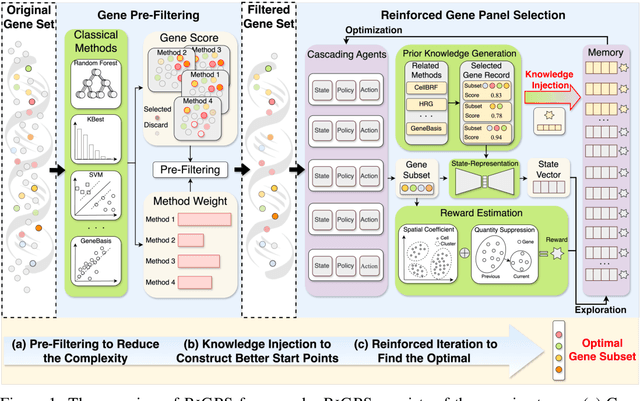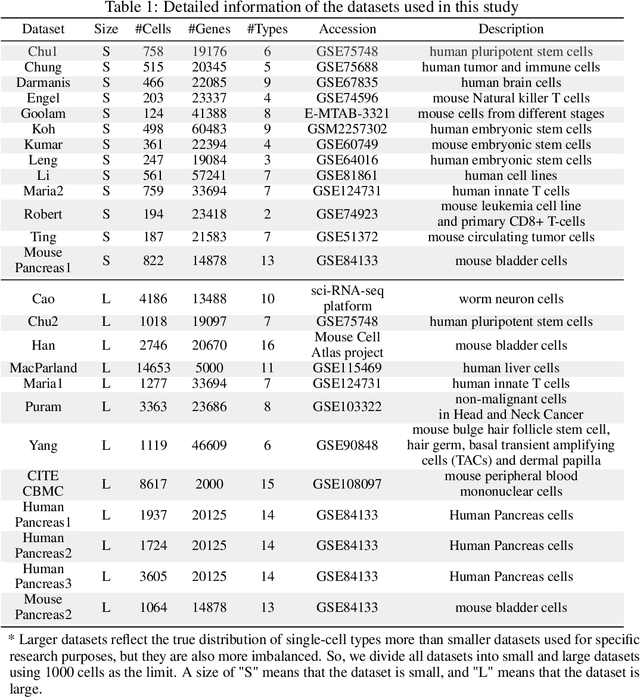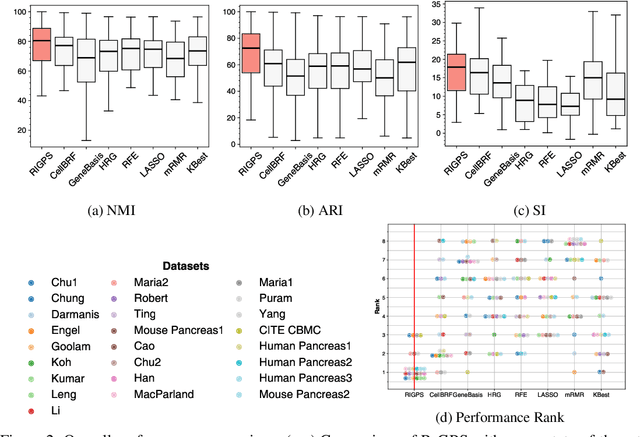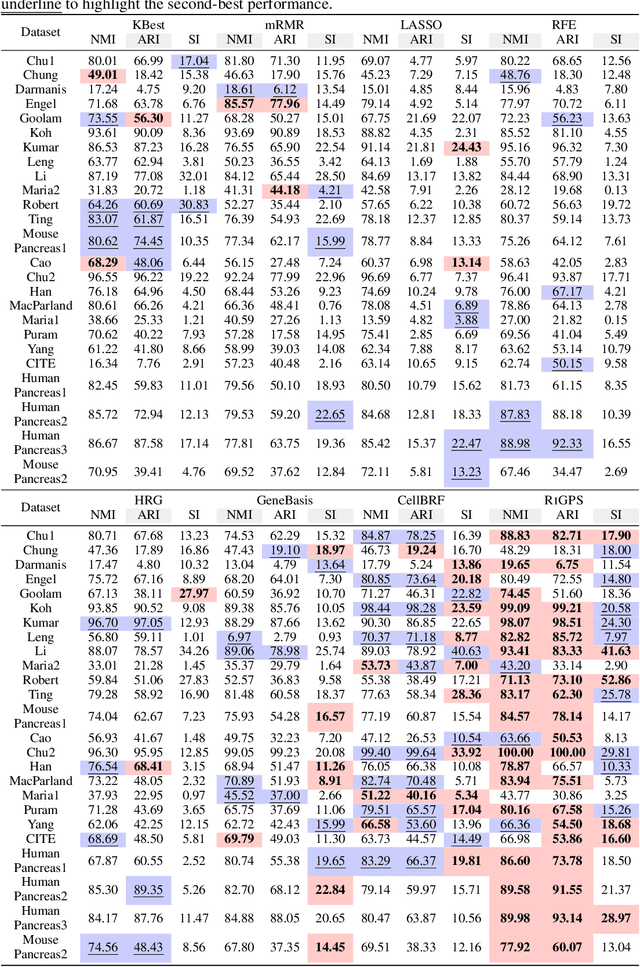Weiliang Zhang
Comprehend, Divide, and Conquer: Feature Subspace Exploration via Multi-Agent Hierarchical Reinforcement Learning
Apr 24, 2025



Abstract:Feature selection aims to preprocess the target dataset, find an optimal and most streamlined feature subset, and enhance the downstream machine learning task. Among filter, wrapper, and embedded-based approaches, the reinforcement learning (RL)-based subspace exploration strategy provides a novel objective optimization-directed perspective and promising performance. Nevertheless, even with improved performance, current reinforcement learning approaches face challenges similar to conventional methods when dealing with complex datasets. These challenges stem from the inefficient paradigm of using one agent per feature and the inherent complexities present in the datasets. This observation motivates us to investigate and address the above issue and propose a novel approach, namely HRLFS. Our methodology initially employs a Large Language Model (LLM)-based hybrid state extractor to capture each feature's mathematical and semantic characteristics. Based on this information, features are clustered, facilitating the construction of hierarchical agents for each cluster and sub-cluster. Extensive experiments demonstrate the efficiency, scalability, and robustness of our approach. Compared to contemporary or the one-feature-one-agent RL-based approaches, HRLFS improves the downstream ML performance with iterative feature subspace exploration while accelerating total run time by reducing the number of agents involved.
Knowledge-Guided Biomarker Identification for Label-Free Single-Cell RNA-Seq Data: A Reinforcement Learning Perspective
Jan 02, 2025



Abstract:Gene panel selection aims to identify the most informative genomic biomarkers in label-free genomic datasets. Traditional approaches, which rely on domain expertise, embedded machine learning models, or heuristic-based iterative optimization, often introduce biases and inefficiencies, potentially obscuring critical biological signals. To address these challenges, we present an iterative gene panel selection strategy that harnesses ensemble knowledge from existing gene selection algorithms to establish preliminary boundaries or prior knowledge, which guide the initial search space. Subsequently, we incorporate reinforcement learning through a reward function shaped by expert behavior, enabling dynamic refinement and targeted selection of gene panels. This integration mitigates biases stemming from initial boundaries while capitalizing on RL's stochastic adaptability. Comprehensive comparative experiments, case studies, and downstream analyses demonstrate the effectiveness of our method, highlighting its improved precision and efficiency for label-free biomarker discovery. Our results underscore the potential of this approach to advance single-cell genomics data analysis.
Enhanced Gene Selection in Single-Cell Genomics: Pre-Filtering Synergy and Reinforced Optimization
Jun 11, 2024



Abstract:Recent advancements in single-cell genomics necessitate precision in gene panel selection to interpret complex biological data effectively. Those methods aim to streamline the analysis of scRNA-seq data by focusing on the most informative genes that contribute significantly to the specific analysis task. Traditional selection methods, which often rely on expert domain knowledge, embedded machine learning models, or heuristic-based iterative optimization, are prone to biases and inefficiencies that may obscure critical genomic signals. Recognizing the limitations of traditional methods, we aim to transcend these constraints with a refined strategy. In this study, we introduce an iterative gene panel selection strategy that is applicable to clustering tasks in single-cell genomics. Our method uniquely integrates results from other gene selection algorithms, providing valuable preliminary boundaries or prior knowledge as initial guides in the search space to enhance the efficiency of our framework. Furthermore, we incorporate the stochastic nature of the exploration process in reinforcement learning (RL) and its capability for continuous optimization through reward-based feedback. This combination mitigates the biases inherent in the initial boundaries and harnesses RL's adaptability to refine and target gene panel selection dynamically. To illustrate the effectiveness of our method, we conducted detailed comparative experiments, case studies, and visualization analysis.
CMR motion artifact correction using generative adversarial nets
Feb 21, 2019



Abstract:Cardiovascular Magnetic Resonance (CMR) plays an important role in the diagnoses and treatment of cardiovascular diseases while motion artifacts which are formed during the scanning process of CMR seriously affects doctors to find the exact focus. The current correction methods mainly focus on the K-space which is a grid of raw data obtained from the MR signal directly and then transfer to CMR image by inverse Fourier transform. They are neither effective nor efficient and can not be utilized in clinic. In this paper, we propose a novel approach for CMR motion artifact correction using deep learning. Specially, we use deep residual network (ResNet) as net framework and train our model in adversarial manner. Our approach is motivated by the connection between image motion blur and CMR motion artifact, so we can transfer methods from motion-deblur where deep learning has made great progress to CMR motion-correction successfully. To evaluate motion artifact correction methods, we propose a novel algorithm on how edge detection results are improved by deblurred algorithm. Boosted by deep learning and adversarial training algorithm, our model is trainable in an end-to-end manner, can be tested in real-time and achieves the state-of-art results for CMR correction.
 Add to Chrome
Add to Chrome Add to Firefox
Add to Firefox Add to Edge
Add to Edge